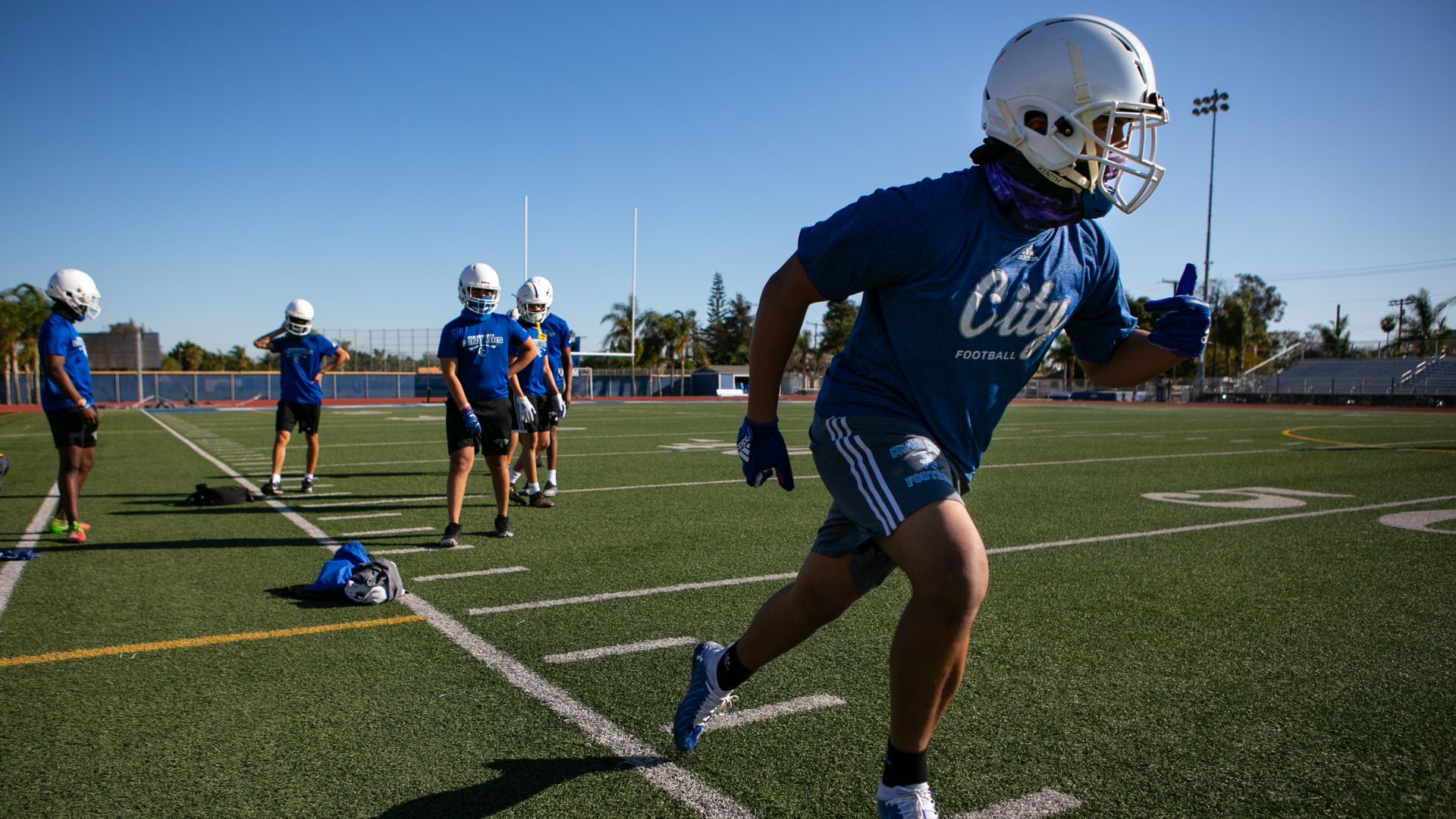Feb 27, 2021 - Sports
FDA approves device intended to reduce traumatic brain injuries
Add Axios as your preferred source to
see more of our stories on Google.

Wide receivers at Culver City High School in California practicing routes on Feb. 26. Photo: Jason Armond/Los Angeles Times via Getty Images
